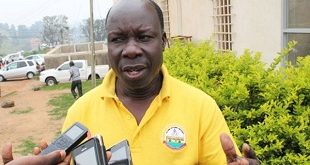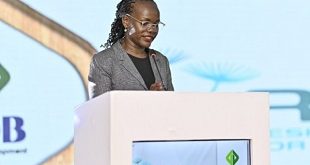
New communication technology-enabled activist journalism needs empirical frameworks of accountability
COMMENT | JOSEPH WERE | The recent public flaying of Agather Atuhaire, Godwin Toko and Jimmy Spire Ssentongo should be a top discussion issue for anyone involved in news media. It is discouraging that most discussion so far has centred on whether or not their organisation; the Agora Centre for Research, should provide financial accountability to those wielding the whip.
Providing accountability to a mob would be unprecedented as organisations such as Agora are known to account strictly to their internal subscribers and external funders. In this case, the American development agency, USAID, is said to be involved together with the ICT Think Tank, the Collaboration on International ICT Policy for East and Southern Africa (CIPESA). Details are scanty but that is peripheral if not tangential.
Equally dismissible are debates on whether organisations such as the Agora Centre that are sponsored to pursue specific agendas; in this case anti-corruption, human rights advocacy, and good governance should pass off as news media enterprises.
Identity is essential to professional journalism. Atuhaire, Toko and Ssentongo all have connection to some legacy media establishments. Atuhaire is a journalist and lawyer, Toko is a lawyer and media columnist, and Ssentongo is a professor of Ethics, columnist and cartoonist. All are activists.
Under Agora, they host online discussions called “Spaces” on any issue, publish cartoons, and hold public “exhibitions” on corruption, human rights abuse, potholes etcetera on their social media handles.
On its website, Agora Centre takes pride in “fearlessly tackling topics that mainstream media approaches cautiously”. It adds that “AGORA disrupts conventional digital tools usage, influencing social media to foster public discourse amidst tightening government restrictions on freedom of speech, assembly, and association.”
Does what Atuhaire, Toko and Ssentongo do under Agora Centre qualify as media activism, non-objective journalism, or plain activism? In this era of evolving new communication technology (NCT) spaces, the question is pertinent but irrelevant to the issue at hand.

The issue that should concern anyone involved in news media in the era of NCTs is the extent to which accountability crusaders of any kind are easily outflanked by mobs, be they real or bots, online. This is doubly critical in the context of autocratic, repressive, and corrupt regimes.
In the case of Atuhaire, Toko and Ssentongo, the corrupt cabal and its surrogates has demonstrated its ability to take down lone ranger activists. This raises the question: how can they better protect and defend themselves?
To invert this problem leads to assessing what mistakes media activists such as Atuhaire, Toko and Ssentongo make and avoid them. This should illuminate what they could do to better protect themselves in the future.
Money and media accountability have been unlikely companions since the invention of the printing press and mass media in the 1800s and the invention of the telegraph, radio, and TV. Now it’s the turn of the internet and a shift toward NCT-driven individual journalist driven by consumers and financiers. This has left legacy media frayed without consumers, sponsors, or ability to monetise its feeble presence in the NCT space.
But it appears the principles espoused by ethical legacy media; including the emphasis on accountability and professional identity deserve a dust-off in the context of NCTs. Essentially, there needs to be a return to the past of journalism.
So far emerging individual activist media operators using NCTs have lacked the scrutiny and standards that are commonplace in legacy media. These individualistic ventures have operated without discernible clearly delineated theoretical and empirical frameworks and concepts. They practice the kind of online lynching that Atuhaire, Toko, and Sentongo now face. The facts here are fleeting and deciphering truth from travesty is difficult. That needs to change.
What is not in doubt is that the case of Agora and others highlights the urgent requirement for new theoretical and empirical frameworks and concepts around online or digital activist journalism.
Anyone with knowledge of organisations with lean formations that are typical in online or digital activist media operations can attest to the importance of rigorous founding protocols, operational structures, and accountability auditing mechanisms backed by firm boards of directors.
Successful traditional journalists and small newsrooms that have weathered storms are built on bedrocks of cultures, normative standards and journalistic ideals that shield them. These media practitioners have courage and seek as much as possible to be accurate, fair, honest, neutral, objective, and firm as they comfort the afflicted and afflict the comfortable.
For success in the future, activist journalists must search in the past of legacy media practice to find protection. They will find they need to start to ‘give the Devil the benefit of law’ instead of cutting “a great road through the law to get after the Devil” to paraphrase Sir Thomas More. The successful media model of the future is one where sturdy principles of the old buttress the fledgling experiments of the new in a spectrum of novel platforms.
*****
 Jospeh Were is Managing Editor at The Independent
Jospeh Were is Managing Editor at The Independent
 The Independent Uganda: You get the Truth we Pay the Price
The Independent Uganda: You get the Truth we Pay the Price



